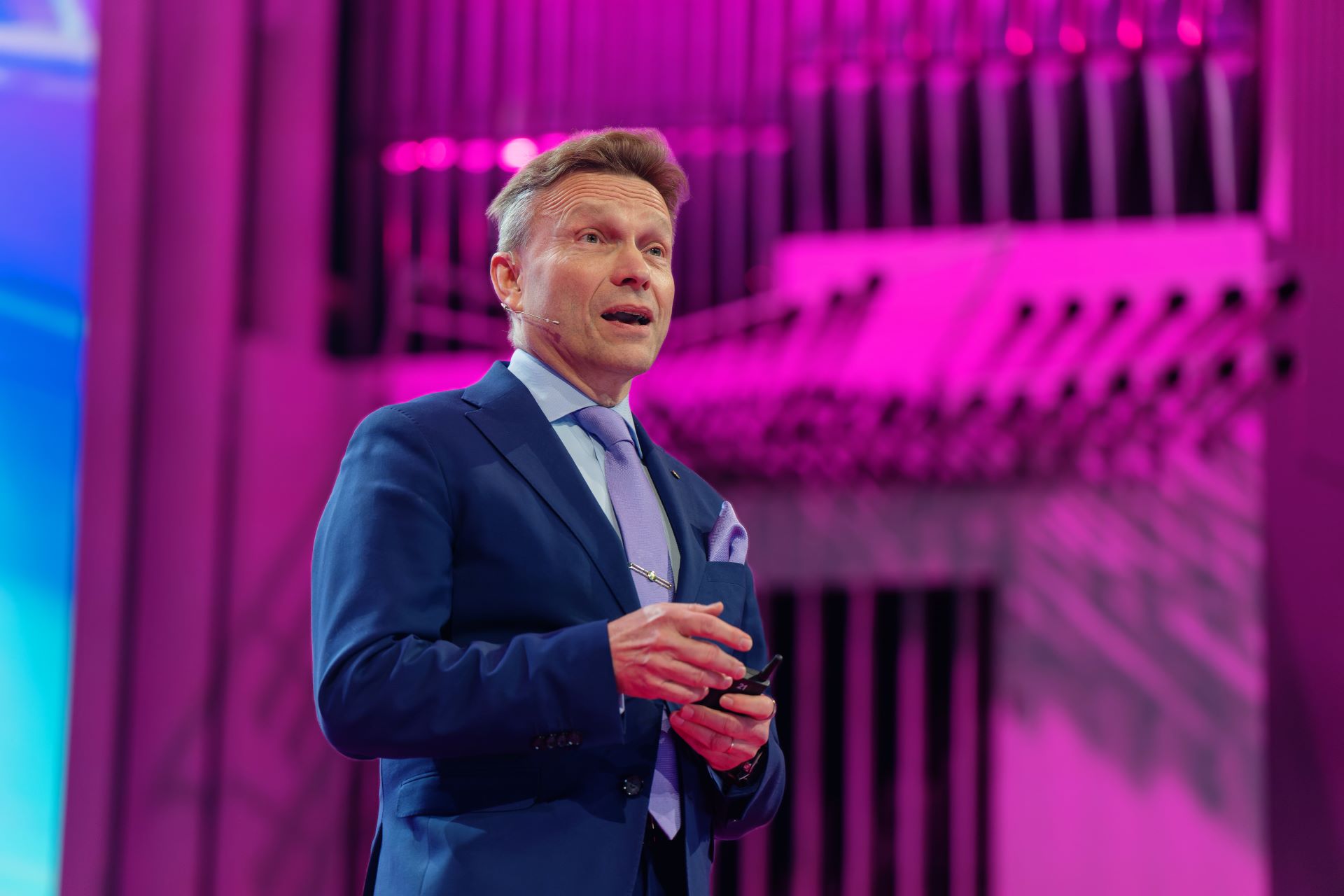Customers set the direction taken by banking – OP adapts its services as times change
More about the topic
The financial sector has been a front-runner in digitalisation from the start. Timo Ritakallio, President and Group CEO, highlights the importance of AI in service development.
We live in a world that has witnessed a succession of big events in recent years. Concerns such as sustainability, corporate responsibility and climate change have made way for more topical themes: geopolitical instability, uncertainty in the global economy, and the transformation brought by generative AI and data.
Timo Ritakallio points out that data is the key factor in the current transformation.
The financial sector has masses of data. To be useful, such data must be varied, extensive and high-quality.
- We've initiated continuous processes that promote higher data quality and the use of data in real time. We've also been looking at how to enrich our data by leveraging external data sources, Ritakallio points out at the Microsoft AI Tour event in Helsinki.
Ritakallio believes that companies will have trouble surviving if they don't try to leverage AI for efficiency gains.
- Just look at how leading organisations in various sectors have leapt ahead with AI, kicking off major productivity improvements. And that's before we even discuss what's on the horizon.
Ritakallio explains that – in a world changed by AI – companies must nurture their brands, ensuring that they inspire trust.
- A trusted brand is the key factor when customers choose between digital channels. Luckily for us, we have a recognised, reliable brand.
In a recent survey, OP Financial Group's reputation has improved even further over the past two years from a good level. In the survey, the general public evaluates companies' reputation in areas such as interaction and products & services.
Technology becomes more human
The financial sector has been a front-runner in digitalisation from the start.
- In the first phase, the customer experience became fairly technical and highly standardised for all users, which made contacts with banking staff very different to interactions with insurance services, Ritakallio says.
- The same employee might have served the same customer for decades, which could be regarded as a highly personalised service. With the current trend, digital services are becoming less technical and more personalised. Service interaction is more frequently in natural language, both in text and speech. Fairly soon, if not already, we'll be in a world where machines can even recognise customers' gestures.
When interacting in natural language, customers can communicate and use services through everyday speech and text, as they would when chatting with other people. This could be done through, say, SMSes, email messages or speech recognition.
We are relentlessly exploring how to hyper-personalise our services even more.
AI and machine learning enable systems to understand and respond to customers' questions and requests in natural language, making service interaction smoother and more personal.
- This is all an integral part of our strategy. We are relentlessly exploring how to hyper-personalise our services even more – including through digital channels – and increase their predictiveness.

Hyper-personalisation involves tailoring services and products to meet individual needs and preferences. This is done by using AI and data to predict the needs of customers and provide them with the most suitable solutions.
For example, hyper-personalisation uses data to continuously enable better prediction of customer behaviour and thereby improve the customer experience.
– It's important to realise that AI will increasingly serve as a personal assistant for customers engaging in digital service interactions. Our strategy used to be about Mobile first, but now it's about AI first.
Customers set the direction taken by banking
Ritakallio points out that OP-mobile has more than 1.7 million active users. There were 62 million logins in February, which adds up to over 700 million logins per year.
This figure has increased fourfold since 2019 and the number of active users has doubled.
– It's this transition that leads us continuously to wonder how we can provide increasingly personalised services through the mobile channel.
Not all development work has borne fruit in OP Financial Group. Ritakallio mentions the example of face payment. Trials don't always succeed, but you learn a great deal no matter what, he says.
